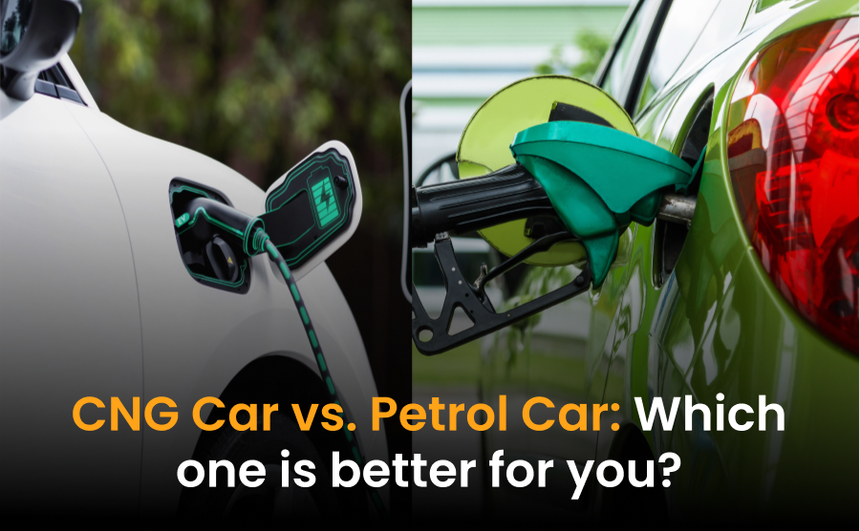The debate between CNG (Compressed Natural Gas) cars and petrol cars has been a topic of interest for car enthusiasts and eco-conscious individuals alike. Both fuel types have their advantages and drawbacks, making the choice depend on factors like cost, efficiency, environmental impact, and performance. In this article, we’ll dive deep into the key differences to help you decide which suits your needs better.

1. Fuel Efficiency and Running Costs
One of the most significant advantages of CNG cars is their lower running costs. CNG is cheaper than petrol in most regions, making it a cost-effective option for daily commuting. For instance, while a petrol car may cost around ₹6-8 per kilometer to run, a CNG car might cost just ₹2-3 per kilometer.
However, CNG cars generally have a slightly lower mileage compared to their petrol counterparts. While the fuel is economical, its energy density is lower than petrol, which may result in more frequent refueling stops.
2. Environmental Impact
CNG cars are considered more environmentally friendly. CNG combustion produces significantly fewer harmful emissions compared to petrol, reducing the levels of carbon dioxide (CO2), nitrogen oxides (NOx), and particulate matter released into the atmosphere. For those prioritizing a cleaner and greener commute, CNG cars are a clear winner.
On the other hand, petrol cars emit higher levels of greenhouse gases and pollutants, contributing to air pollution and climate change.
3. Performance and Power
When it comes to performance, petrol cars have the upper hand. Petrol engines offer better power delivery, smoother acceleration, and higher torque, making them a preferred choice for long drives and enthusiasts who enjoy spirited driving.
CNG cars, while efficient, compromise slightly on performance. The reduced power output of a CNG engine may result in slower acceleration and lower top speeds. This difference is more noticeable in larger vehicles or when driving on highways.
4. Maintenance and Durability
CNG cars require specific maintenance routines, including regular checks on the CNG kit and periodic cleaning of injectors and valves. Additionally, the storage tank for CNG takes up space and adds weight, which can slightly affect vehicle dynamics.
Petrol cars are easier to maintain and have a longer lifespan for their engines, primarily because petrol combustion produces fewer residues compared to CNG. However, with proper care, CNG cars can also be reliable over the long term.
5. Initial Investment
The initial cost of a CNG car is higher than that of a petrol car, mainly due to the added expense of the CNG kit. However, the cost difference can be offset over time through the savings in fuel expenses. For those who drive frequently, the payback period for a CNG car can be as short as a few years.
6. Availability of Fuel
One of the major limitations of CNG cars is the availability of fuel. CNG stations are limited to urban areas, and finding one in remote or rural regions can be challenging. In contrast, petrol is widely available, making petrol cars a more practical option for long-distance travelers or those living in areas with limited infrastructure.
Conclusion
Choosing between a CNG car and a petrol car ultimately depends on your priorities and usage. If you’re looking for a cost-effective, eco-friendly option for city commutes, a CNG car is a great choice. However, if performance, convenience, and long-distance driving are your main concerns, a petrol car is the better option.
By understanding the pros and cons of each, you can make an informed decision that suits your lifestyle and budget.
